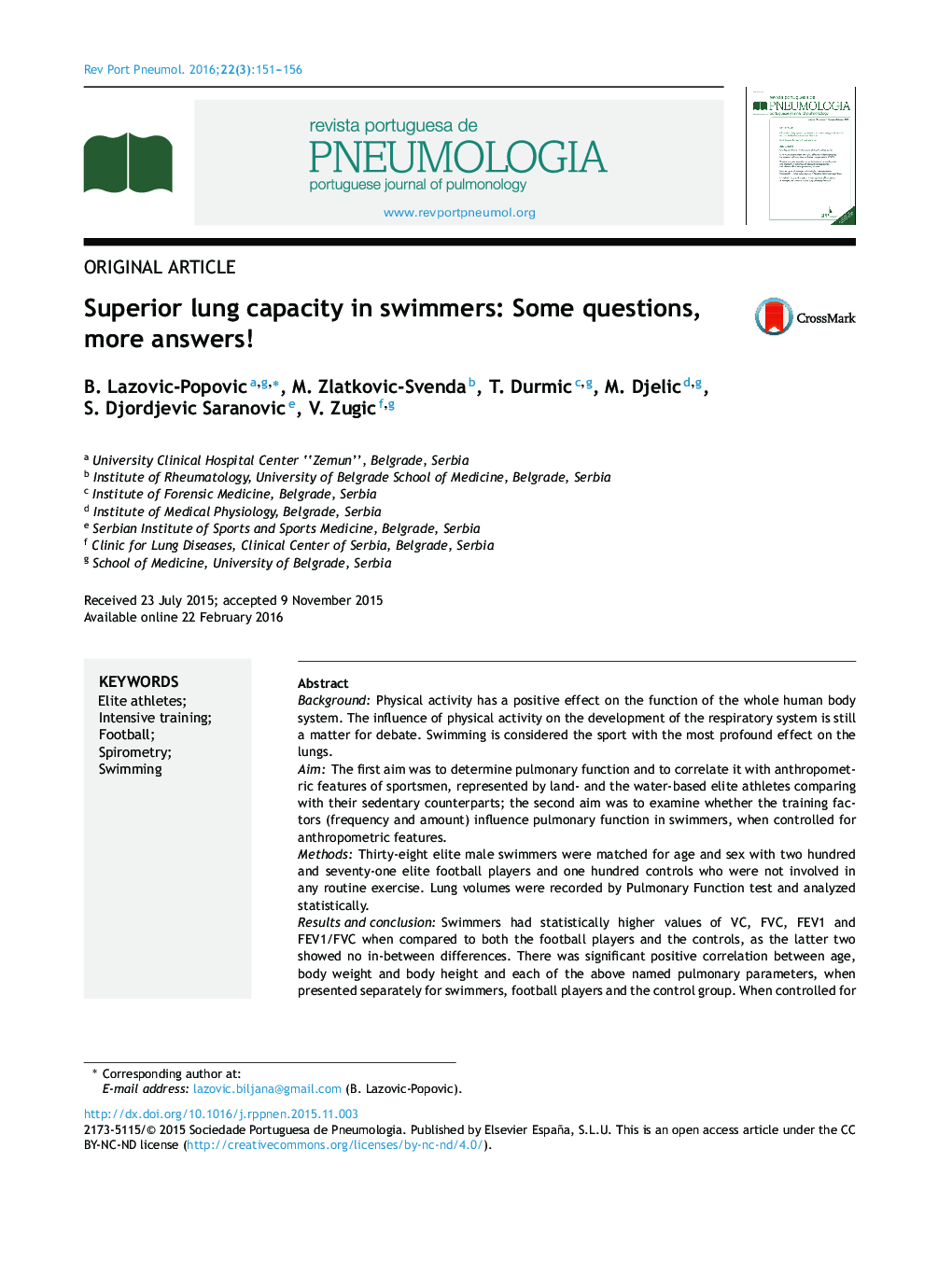| Article ID | Journal | Published Year | Pages | File Type |
|---|---|---|---|---|
| 4214586 | Revista Portuguesa de Pneumologia (English Edition) | 2016 | 6 Pages |
BackgroundPhysical activity has a positive effect on the function of the whole human body system. The influence of physical activity on the development of the respiratory system is still a matter for debate. Swimming is considered the sport with the most profound effect on the lungs.AimThe first aim was to determine pulmonary function and to correlate it with anthropometric features of sportsmen, represented by land- and the water-based elite athletes comparing with their sedentary counterparts; the second aim was to examine whether the training factors (frequency and amount) influence pulmonary function in swimmers, when controlled for anthropometric features.MethodsThirty-eight elite male swimmers were matched for age and sex with two hundred and seventy-one elite football players and one hundred controls who were not involved in any routine exercise. Lung volumes were recorded by Pulmonary Function test and analyzed statistically.Results and conclusionSwimmers had statistically higher values of VC, FVC, FEV1 and FEV1/FVC when compared to both the football players and the controls, as the latter two showed no in-between differences. There was significant positive correlation between age, body weight and body height and each of the above named pulmonary parameters, when presented separately for swimmers, football players and the control group. When controlled for the anthropometric features, larger lung volumes in swimmers were not influenced by training period, age at the beginning of training and weekly extent of personal training. Further comprehensive longitudinal studies are needed to confirm these observations.
